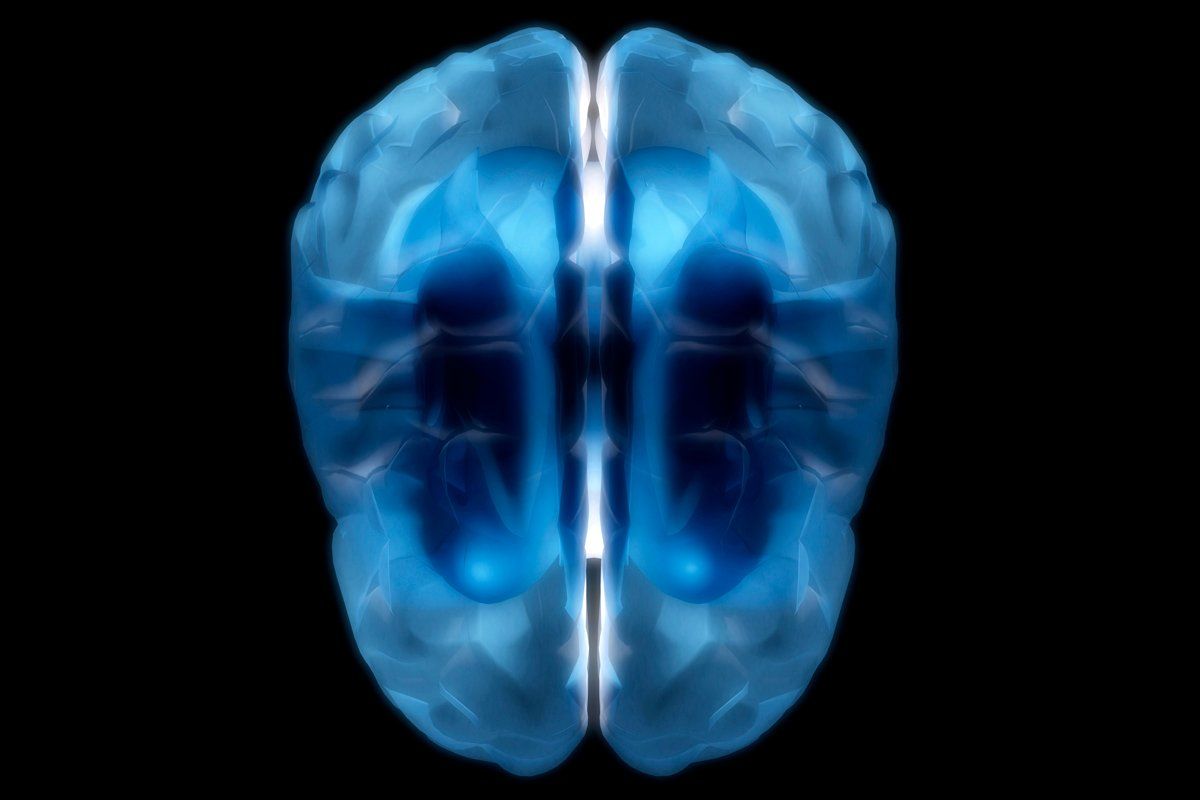
They say you never escape high school. And for better or worse, science is lending some credibility to that old saw. Thanks to sophisticated imaging technology and a raft of longitudinal studies, we're learning that the teen years are a period of crucial brain development subject to a host of environmental and genetic factors. This emerging research sheds light not only on why teenagers act they way they do, but how the experiences of adolescence—from rejection to binge drinking—can affect who we become as adults, how we handle stress, and the way we bond with others.
One of the most important discoveries in this area of study, says Dr. Frances Jensen, a neuroscientist at Harvard, is that our brains are not finished maturing by adolescence, as was previously thought. Adolescent brains "are only about 80 percent of the way to maturity," she said at the annual meeting of the Society for Neuroscience in November. It takes until the mid-20s, and possibly later, for a brain to become fully developed.

An excess of gray matter (the stuff that does the processing) at the beginning of adolescence makes us particularly brilliant at learning—the reason we're so good at picking up new languages starting in early childhood—but also particularly sensitive to the influences of our environment, both emotional and physical. Our brains' processing centers haven't been fully linked yet, particularly the parts responsible for helping to check our impulses and considering the long-term repercussions of our actions. "It's like a brain that's all revved up not knowing where it needs to go," says Jensen.
It's partially because of this developmental timeline that a teen can be so quick to conjure a stinging remark, or a biting insult, and so uninhibited in firing it off at the nearest unfortunate target—a former friend, perhaps, or a bewildered parent. The impulse to hurl an insult is there, just as it may be for an adult in a stressful situation, but the brain regions that an adult might rely on to stop himself from saying something cruel just haven't caught up.
Or consider risky sexual behavior. Recent studies suggest that the teen brain is particularly sensitive to activities—like sex—that trigger a response in the neurotransmitter dopamine, the same chemical often associated with both addiction and healthier behaviors having to do with motivation and reward. The brains of a teen couple upstairs at a party, maybe a bit drunk, are firing like crazy in anticipation of sex; unfortunately, they're lacking full development of the brain regions that in an adult would interject with this urgent message: don't forget to use a condom.
In a paper published last year in the Journal of the American Academy of Child & Adolescent Psychiatry, Dr. Jay Giedd, a scientist at the Child Psychiatry Branch of the National Institutes of Mental Health, wrote that, according to brain scans conducted over several years, gray-matter volume peaks around or just before the beginning of puberty, and then continuously declines. In contrast, white matter (the stuff that helps connect areas of the brain) increases right up to, and beyond, the end of puberty.
These adolescent brain developments don't happen to all parts of the brain at the same time. "The order in which this maturation of connection goes, is from the back of the brain to the front of the brain," says Jensen.
And one of the last parts to mature is the frontal lobe, a large area responsible for modulating reward, planning, impulsiveness, attention, acceptable social behavior, and other roles that are known as executive functions.
It's thanks in part to the frontal lobe that we are able to schedule our time with any sort of efficiency, plan in advance to arrange for a designated driver on a night out (or stop drinking before one is over the legal limit), and restrain ourselves from getting into fights any time we get involved in an argument. Unfortunately, it's just these sorts of behaviors that teenage brains are not fully endowed to deal with—and the consequences are potentially fatal when it comes to high-risk behavior like drinking and driving.
This blast of teen-brain change is compounded by profound social and psychological shifts. Of particular importance is that adolescence is the time when we develop stronger social connections with our peers, and more independence from our parents.
"Before the transition to adolescence, kids' interactions with one another, and the kinds of friendships that they have, are substantially different," explains Dr. Mitch Prinstein, professor and director of clinical psychology, at the University of North Carolina, Chapel Hill. "After adolescence they can really confide in friends, they turn to them as first sources of social support. Kids tell us all the time they are more likely to tell their friends about things going on in their lives, and stressors, than any adult."
This cuts both ways. Healthy relationships have a positive effect on how an adolescent navigates through a tumultuous period of life. But at the same time, this reliance on friends makes young people susceptible to the influence of peer pressure, even when it is indirect.
"The most potent predictors of why adolescents engage in all kinds of health-risk behaviors—substance use, sexual behavior, even recently, self-cutting—is very much related to how much they perceive that their close friends are doing the same thing, or someone that they consider very cool and popular is doing the same thing," says Prinstein.
And, the latest research shows that some of these risky behaviors may have surprising lifelong consequences. Toni Pak, assistant professor in the department of cell and molecular physiology, Stritch School of Medicine, Loyola University, Chicago, recently demonstrated that rats exposed to binge drinking as adolescents developed some troubling issues as adults. When given alcohol, the former teen binge-drinking rats had abnormally high levels of the stress hormone cortisol; and when given repeated doses of alcohol, their brains failed to desensitize to the stress-hormone response as quickly as those of normal rats. When the rats' brains were analyzed postmortem, Pak found that the former adolescent drinkers had profound changes in the genetic expression of the system that regulates stress-hormone release. "That is the same type of profile that we see in adult patients who have been diagnosed with post traumatic stress disorder" and other mood disorders, says Pak. "They are not able to get used to stressors and they have very exaggerated responses to mild stress."
Meanwhile, a Harvard study found that kids who smoked pot before age 16 had more lifelong cognitive problems than those who started smoking after 16. The tests were done on subjects with an average age of 22, and those who smoked pot earlier had problems remembering details, making decisions, and responding quickly when directions changed.
Other research supports the hypothesis that these kinds of prolonged impacts of environmental exposure—not just to alcohol, but to other types of factors, like bullying or abuse—can persist through adulthood, and possibly be passed down to future generations. Just last year, a study of the brains of suicide victims who had been abused as children showed abnormalities in the genetic expression of the same general stress-regulation system, called the HPA axis, that Pak studied in rats.
Another study found that peer rejection and public speaking create a greater chemical stress response in adolescents compared with children. The authors of the paper on this study noted that an increased stress response might be a biological strategy that allows adolescents to adapt to their environments, but that in high-risk individuals this upward shift in stress response "may tip the balance toward stress-response dysregulation associated with depression and other psychopathology." As Kevin Beaver, a Florida State University researcher who studies adolescence and crime, says, "Stress can pull the trigger on the genetic gun."
The good news is that most of us make it out of adolescence just fine. And while a better understanding of the teenage brain may bring into focus dangers we hadn't known existed, it may also allow us to identify who is at risk.
For instance, Prinstein says that the social and psychological dynamics that make adolescents susceptible to acting on the real or perceived pressure of their peers can also be a system for resisting those same pressures. Sometimes it is the adolescents who have been picked on, but have found compatriots, whose anticonformist attitude protects against both the harassment by, and the social pressure from, higher-status peers. And surprisingly, sometimes the teens most at risk are in the middle and upper range of social status, but not quite at the top.
Beaver, who studies the link between biology and environment and how it affects who becomes a violent offender, says that most adolescents are "dabbling with delinquency," and within a certain boundary, that's not only normal (as long as it doesn't go too far), it may be beneficial.
As long as the teenage inclination to dabbling in delinquency is moderate, the vast majority of people, well over 90 percent, says Beaver, grow out of serious delinquent behavior as they become young adults. Right at about the age when the latest findings in neuroscience and advanced imaging tell us our brains are finally matured.
"I wish I had known that when I was an adolescent," says Beaver. "I'd have told my parents."
Uncommon Knowledge
Newsweek is committed to challenging conventional wisdom and finding connections in the search for common ground.
Newsweek is committed to challenging conventional wisdom and finding connections in the search for common ground.
About the writer
To read how Newsweek uses AI as a newsroom tool, Click here.





